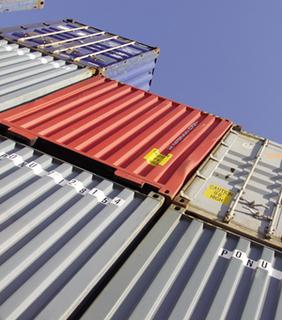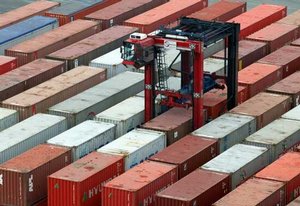Real interest rates mean great returns on the Hungarian forint
Published:
14 April 2004 y., Wednesday
Around the globe, people are looking at Hungary’s real interest rates. With consumer prices up 6.6% year-on-year in January and short-term interest rates close to 12%, there is no other emerging market that offers a better real return on your money.
Massive capital inflows confirm that there is indeed an opportunity. Hot money has pushed up the Hungarian forint to less than Ft 250 per euro. This was the level at which the forint was traded before a flow of adverse macroeconomic data and confused central bank statements drove the currency to its bottom level of over Ft 270 per euro during the second half of 2003.
Is it still worthwhile changing your humble savings into Hungarian forints to benefit from these high interest rates? The answer depends on the exchange rate at which you will convert your money back into your home currency at the end of the day.
Let us suppose you have Ђ100,000 to invest. You can invest it in T-bills from EU countries, giving you a return of around 2%. Alternatively, you change your Ђ100,000 into forints at a rate of Ft 248 and buy Hungarian T-bills for around Ft 24.8 million. This will render you a yield to maturity just below 12%, so that at the end of the year you will own around Ft 27 million.
Provided that you can change your money back into euros at the same rate, you would increase the yield on your investment sixfold compared to investing in euro T-bills! (from 2% to 12%). The problem is that you don’t know the future exchange rate. It is possible, however, to sell the whole amount on the futures market, but only at a rate of Ft 263. Hedging would cost you as much as you would gain from the interest rate differential. Alas, no free lunch.
More interesting returns are available if you’re willing to take a bet on the Hungarian forint. If you’re confident that the forint will stay firm below Ft 263 per euro until the end of December, there is no need to hedge your forint exposure. Is there any reason to be confident about this?
There are, in my opinion, two reasons that make it unlikely that the National Bank of Hungary (MNB) will let the forint depreciate again below a level of around Ft 263 per euro. The first reason is obvious, the second reason more complex in nature.
Šaltinis:
bbj.hu
Copying, publishing, announcing any information from the News.lt portal without written permission of News.lt editorial office is prohibited.
The most popular articles
 President of the Republic of Lithuania Dalia Grybauskaitė welcomed the decision taken by the U.S. Government to transport shipments for the international mission in Afghanistan by transit via the Klaipėda Seaport.
more »
President of the Republic of Lithuania Dalia Grybauskaitė welcomed the decision taken by the U.S. Government to transport shipments for the international mission in Afghanistan by transit via the Klaipėda Seaport.
more »
 EU Solidarity Fund aid to repair storm damage in France and Portugal was approved by the Budgets Committee on Thursday.
more »
EU Solidarity Fund aid to repair storm damage in France and Portugal was approved by the Budgets Committee on Thursday.
more »
 The European Investment Bank and the Government of Samoa formally agreed to support the rehabilitation and upgrade of independent water schemes in the Pacific island state under a EUR 250,000 technical assistance programme.
more »
The European Investment Bank and the Government of Samoa formally agreed to support the rehabilitation and upgrade of independent water schemes in the Pacific island state under a EUR 250,000 technical assistance programme.
more »
 Steps to overhaul the European Union's flagship single market were discussed on Tuesday (9 November) by MEPs and interested parties.
more »
Steps to overhaul the European Union's flagship single market were discussed on Tuesday (9 November) by MEPs and interested parties.
more »
 Strategy to secure a sustainable EU energy supply and support economic growth over the next decade.
more »
Strategy to secure a sustainable EU energy supply and support economic growth over the next decade.
more »
 EU funding to help 850 former workers in the aircraft maintenance industry around Dublin find new jobs was approved by the European Parliament on Thursday.
more »
EU funding to help 850 former workers in the aircraft maintenance industry around Dublin find new jobs was approved by the European Parliament on Thursday.
more »
Saffron farmers in western Afghanistan hope to oust opium as a harvest crop.
more »
 The European Commission has approved an application from Poland for assistance from the European Globalisation adjustment Fund (EGF).
more »
The European Commission has approved an application from Poland for assistance from the European Globalisation adjustment Fund (EGF).
more »
 New plans for EU industry to create jobs while keeping manufacturing in Europe.
more »
New plans for EU industry to create jobs while keeping manufacturing in Europe.
more »
 The European Commission has approved two applications from Spain for assistance from the EU Globalisation Adjustment Fund (EGF).
more »
The European Commission has approved two applications from Spain for assistance from the EU Globalisation Adjustment Fund (EGF).
more »